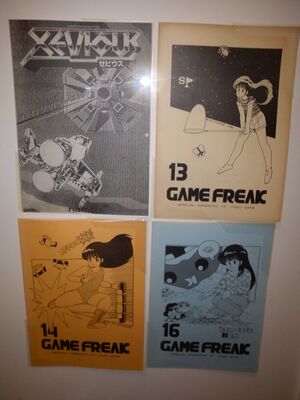Game Freak: Difference between revisions
m (→In the games: Repeated statement in same sentence removed.) |
m (→Key people) |
||
| Line 38: | Line 38: | ||
* [[Shigeki Morimoto]] (森本茂樹) | * [[Shigeki Morimoto]] (森本茂樹) | ||
* [[Motofumi Fujiwara]] (藤原基史) | * [[Motofumi Fujiwara]] (藤原基史) | ||
* [[Kōji Nishino]] | * [[Kōji Nishino]] (西野弘二) | ||
==In the games== | ==In the games== | ||
Revision as of 09:36, 11 February 2018
Game Freak, Inc. (Japanese: 株式会社ゲームフリーク Kabushiki gaisha Game Freak), officially stylised as GAME FREAK inc. or less commonly as GAMEFREAK inc., is a Japanese game development company founded on April 26, 1989 by Satoshi Tajiri, Ken Sugimori, and Junichi Masuda, and the main company responsible for the Pokémon games, most especially the core series.
Originally independent, since the release of Pokémon Red and Green in 1996, Game Freak has been a second-party developer for Nintendo, developing games almost exclusively for their hardware while remaining a separate company. The company currently employs a staff of 118 as of April 2017,[1] while Satoshi Tajiri serves as its current CEO. Its headquarters are on the 22nd floor of the Carrot Tower in Setagaya, Tokyo, Japan.
History
Early history
Game Freak, at the time unincorporated, originated as a video game magazine in the early 1980s. Run chiefly by Tajiri, with art made by Sugimori, the magazines typically were released at a length of around 28 pages and at a price of ¥300 (roughly US$3). Initially, the magazine was handwritten, but Tajiri later outsourced this to a professional printing company.
In 1989, Tajiri published his first video game, Quinty, which was localized as Mendel Palace for its North American release. In the same year, Game Freak was officially incorporated, and began work on several video games for the two largest players in the industry at the time, Nintendo and Sega. Among these games were licensed titles such as Yoshi and Mario & Wario, as well as original games such as Pulseman and Smart Ball.
Pokémon
Though the idea for what would become the Pokémon games had existed in Tajiri's mind for a while, actual development of the Pokémon idea began as Capsule Monsters in 1990. Tajiri pitched this idea to Nintendo, however, it was rejected, and issues copyrighting the name led Tajiri to change it, first shortening it to CapuMon, then changing it to Pocket Monsters. With further revision of the idea, Tajiri pitched it again to Nintendo, and with the confidence of Shigeru Miyamoto swaying the decision, development was finally greenlighted.
Though the franchise is currently the second-most successful game franchise in the world (placing shortly behind Mario), development of Pokémon Red and Green was incredibly difficult for the team at Game Freak, with the six-year development period and low finances of the company causing many of the staff to leave for other employment. Tajiri himself worked long hours, many of them unpaid, in order to bring Pokémon out, finally releasing them on February 27, 1996. An international success overnight, Game Freak became recognized as one of the best game developers Nintendo had working for them, leading to their second-party status.
Since Red and Green, Game Freak has developed all core series games; other games, including the battle arena games and GameCube RPGs Pokémon Colosseum and XD, have been developed by other Nintendo affiliates and subsidiaries. The Game Boy Camera, more of an add-on to the Game Boy than a game itself, had its image editing software developed by Game Freak as well.
Later non-Pokémon work

Though Game Freak has mainly developed the Pokémon series since its 1996 debut, it is responsible for five games released since then that were not Pokémon-related. Click Medic, a Japan-only medical simulation game for the PlayStation, plays similarly to Pokémon, though instead of monsters, features a doctor using various vaccines and antibodies to fight against viruses and other maladies inside of a patient's body.
Another game, Drill Dozer, was released for the Game Boy Advance in the interim between the release of Pokémon Emerald and Pokémon Diamond and Pearl, featuring a young girl who operates a drilling machine in order to take down enemies in each of the worlds.
Game Freak's most recent non-Pokémon titles are HarmoKnight (a rhythm-based action game which also features music from the Pokémon games) and Pocket Card Jockey (a game that mixes solitaire and horse racing), which were respectively released for the 3DS in Japan on 2012 and 2013 via the Nintendo eShop, and 2016 worldwide on the Nintendo eShop. Pocket Card Jockey was later ported to Android and iOS in Japan, making it the first Game Freak game to be released on a non-Nintendo system since Click Medic.
In March 2015, Game Freak announced Tembo the Badass Elephant, to be published by Sega for PlayStation 4, Xbox One, and Microsoft Windows. It is the first title by Game Freak not released on a Nintendo system since Click Medic. It features the titular elephant fighting against an evil invading army.
Philosophy
Game Freak's philosophy, as stated on their website, is "To give the people of the world enjoyment, fun and discovery by continuously creating games of superior quality. And to encourage bravery, hope, kindness, dreams and an adventurous spirit." This philosophy is easily seen in the Pokémon games, where the player must fight bravely against the various villainous teams, journeying across their region with their Pokémon by their side.
Key people
- Satoshi Tajiri (田尻 智), founder, CEO, chairman of the board
- Ken Sugimori (杉森 建), board member, art director
- Jun'ichi Masuda (増田順一), board member, head of development
- Takenori Ōta (太田健程)
- Shigeki Morimoto (森本茂樹)
- Motofumi Fujiwara (藤原基史)
- Kōji Nishino (西野弘二)
In the games
Game Freak employees appear in each of the core series games. The main reason to visit them is to obtain a diploma, awarded after the completion of the Pokédex. In Pokémon HeartGold and SoulSilver, the sound designer gives the GB Sounds after the player has obtained all 8 Kanto Badges.
Their headquarters are located on the third floor of the Celadon Condominiums. They have their own office on 22F of a building in Castelia City, just like in their real-world office in Carrot Tower. They also have an office on the second floor of a building in Heahea City. In Hoenn, a group of Game Freak employees are on vacation, staying in Lilycove City's Cove Lily Motel; in Sinnoh, a single member is staying at the Hotel Grand Lake; in Kalos, the game director can be found staying at the Hotel Coumarine in Coumarine City.
In Pokémon Black and White, the player can battle a character representing Shigeki Morimoto in the office after stopping Team Plasma. In Black 2 and White 2, they can also battle Kōji Nishino, who uses a Snorlax as his highest leveled Pokémon, a reference to his nickname カビゴン Kabigon, after which Snorlax is named (in the English versions, he calls himself Snorlax). Both Morimoto and Nishino have the Trainer class GAME FREAK. In Pokémon Sun and Moon, the player can battle Morimoto in the Game Freak office, who will give the player an Oval Charm the first time he is defeated.
Logo screen

|
This section is incomplete. Please feel free to edit this section to add missing information and complete it. Reason: Gen VI and VII screens |
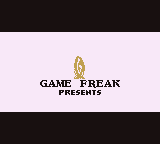
|
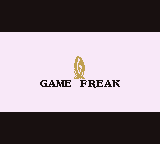
|
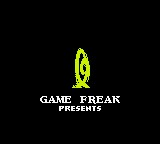
|
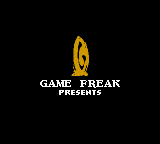
|
| RGBY | RBY | GS | C |
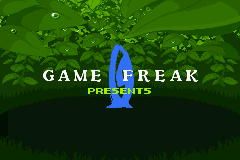
|
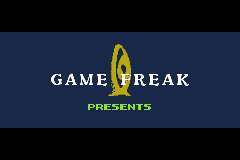
|
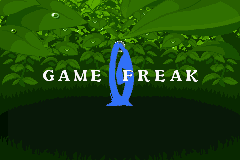
|
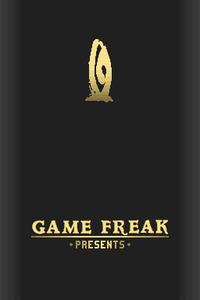
|
| RS | FRLG | E | DP |
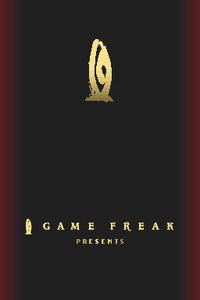
|
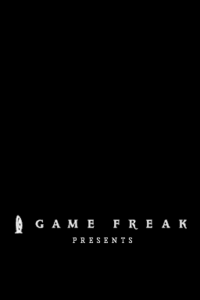
|
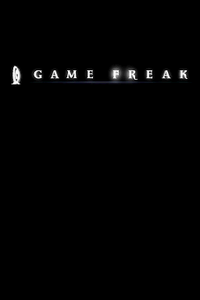
| |
| Pt | HGSS | BWB2W2 |
Related articles
External links
- Wikipedia article
- NintendoWiki article
- Super Mario Wiki article
- StrategyWiki category
- Official website (Japanese)

